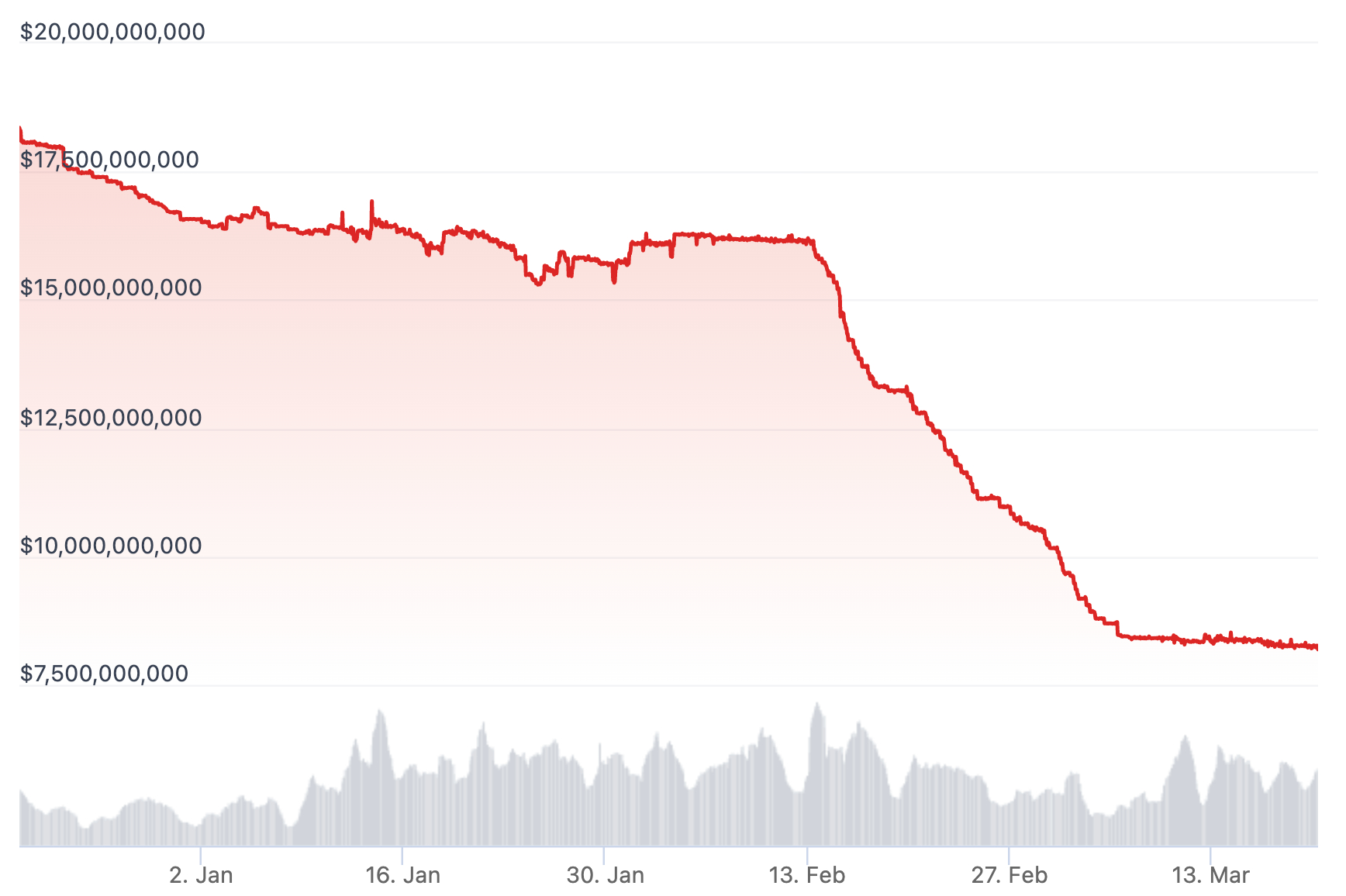Binance is increasingly taking heat from regulators on multiple fronts, with its US business being the most vulnerable to ongoing crackdowns by the Securities and Exchange Commission (SEC).
Most pressing is perhaps claims by the SEC that Binance.US is operating an “unregistered securities exchange in the United States.”
The claims by the SEC were communicated during a bankruptcy hearing about the failed crypto lender Voyager Digital earlier this month, where an SEC official also said the agency believed Voyager’s VGX tokens violated US securities laws.
Binance.US planned to acquire Voyager Digital in a $1.3 billion deal.
The deal was first approved by a judge in the bankruptcy court, but was later halted by US regulators on the grounds that it violated laws on the unregistered offer and sale of securities.
BUSD stablecoin in spotlight
In addition to the issues surrounding the alleged sale of unregistered securities, US regulators have also cracked down on Binance’s offering of the Binance USD (BUSD) stablecoin, which is issued by the regulated US company Paxos Trust Company.
The stablecoin will now no longer be minted after the New York Department of Financial Services, which regulates Paxos, said there were “several unresolved issues related to Paxos’ oversight of its relationship with Binance.”
In addition to that, the SEC has threatened to sue Paxos over the issuance of BUSD in a so-called Wells Notice. In the notice, the SEC called BUSD an unregistered security.
As a consequence of these actions, Binance CEO Changpeng Zhao (CZ) has said that the market cap of BUSD will fall over time.
He also admitted that Binance, and Binance users, over time, will “move away from using BUSD as the main pair for trading.”

Paxos, on its end, has said that it would “end its relationship with Binance,” and that it would stop issuing new BUSD tokens from February 21.
Coinbase delists BUSD
Meanwhile, the US-based crypto exchange Coinbase as recently as last week said it would no longer support trading with BUSD, citing its “listing standards” as the reason for the decision.
“We have disabled trading for Binance USD (BUSD). Your BUSD funds will remain accessible to you, and you will continue to have the ability to withdraw your funds,” the exchange said in an announcement at the time.
Despite all of the regulatory hurdles, however, Binance has continued to operate its US-based business, which it insists is “a very separate entity” from the larger international exchange.
And given the company’s proven track record in playing the regulatory game in multiple jurisdictions around the world, chances are that Binance can continue to find a way around regulatory barriers and government officials that would like to see it shut down.
Binance is increasingly taking heat from regulators on multiple fronts, with its US business being the most vulnerable to ongoing crackdowns by the Securities and Exchange Commission (SEC).
Most pressing is perhaps claims by the SEC that Binance.US is operating an “unregistered securities exchange in the United States.”
The claims by the SEC were communicated during a bankruptcy hearing about the failed crypto lender Voyager Digital earlier this month, where an SEC official also said the agency believed Voyager’s VGX tokens violated US securities laws.
Binance.US planned to acquire Voyager Digital in a $1.3 billion deal.
The deal was first approved by a judge in the bankruptcy court, but was later halted by US regulators on the grounds that it violated laws on the unregistered offer and sale of securities.
BUSD stablecoin in spotlight
In addition to the issues surrounding the alleged sale of unregistered securities, US regulators have also cracked down on Binance’s offering of the Binance USD (BUSD) stablecoin, which is issued by the regulated US company Paxos Trust Company.
The stablecoin will now no longer be minted after the New York Department of Financial Services, which regulates Paxos, said there were “several unresolved issues related to Paxos’ oversight of its relationship with Binance.”
In addition to that, the SEC has threatened to sue Paxos over the issuance of BUSD in a so-called Wells Notice. In the notice, the SEC called BUSD an unregistered security.
As a consequence of these actions, Binance CEO Changpeng Zhao (CZ) has said that the market cap of BUSD will fall over time.
He also admitted that Binance, and Binance users, over time, will “move away from using BUSD as the main pair for trading.”

Paxos, on its end, has said that it would “end its relationship with Binance,” and that it would stop issuing new BUSD tokens from February 21.
Coinbase delists BUSD
Meanwhile, the US-based crypto exchange Coinbase as recently as last week said it would no longer support trading with BUSD, citing its “listing standards” as the reason for the decision.
“We have disabled trading for Binance USD (BUSD). Your BUSD funds will remain accessible to you, and you will continue to have the ability to withdraw your funds,” the exchange said in an announcement at the time.
Despite all of the regulatory hurdles, however, Binance has continued to operate its US-based business, which it insists is “a very separate entity” from the larger international exchange.
And given the company’s proven track record in playing the regulatory game in multiple jurisdictions around the world, chances are that Binance can continue to find a way around regulatory barriers and government officials that would like to see it shut down.